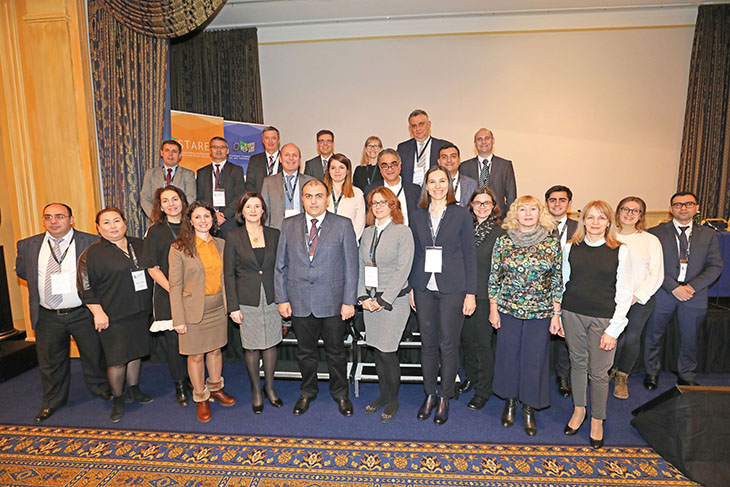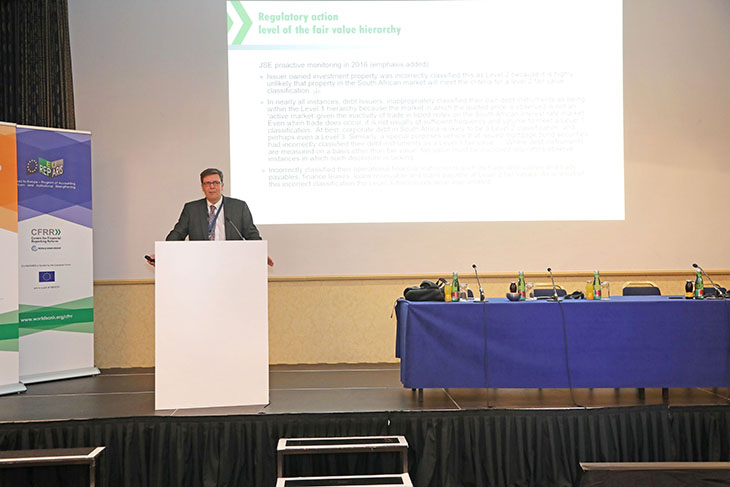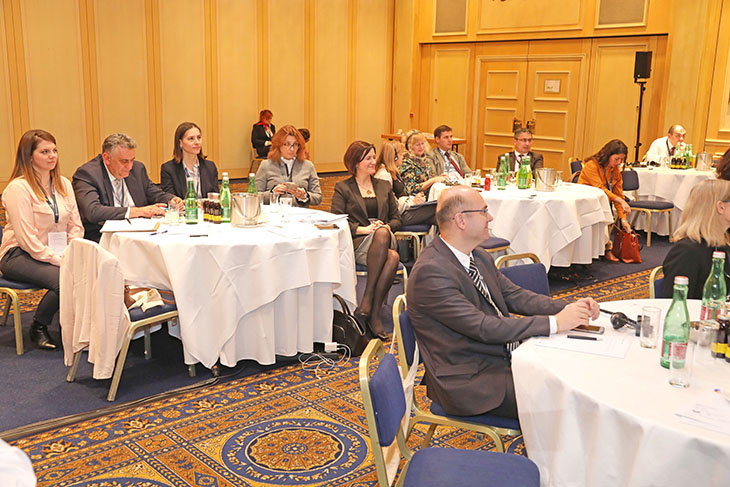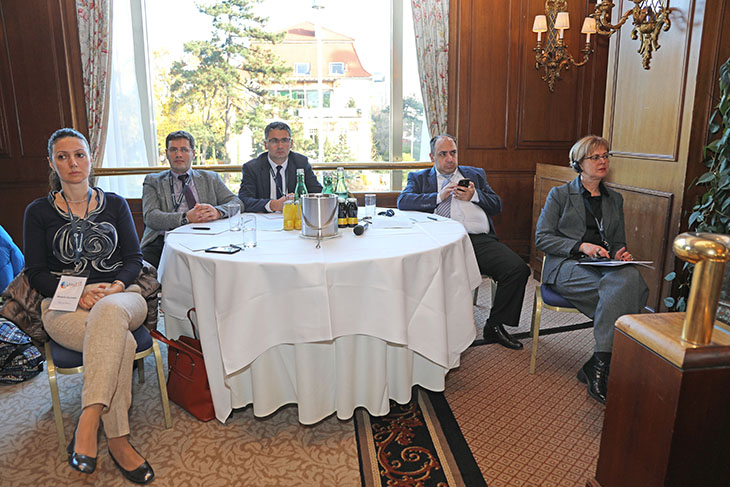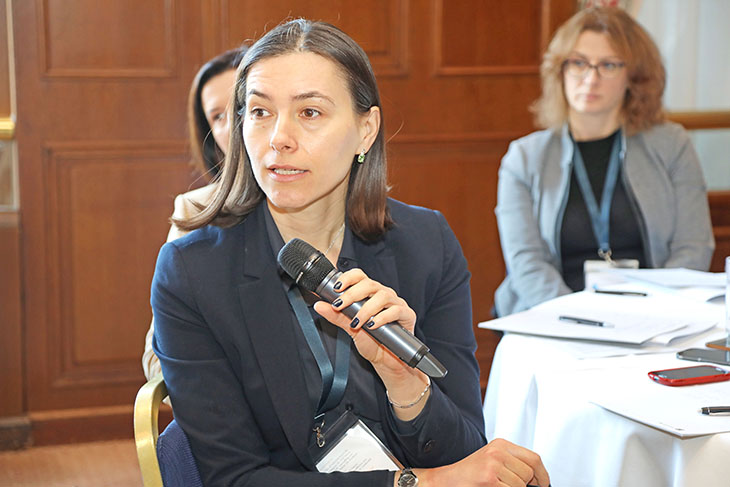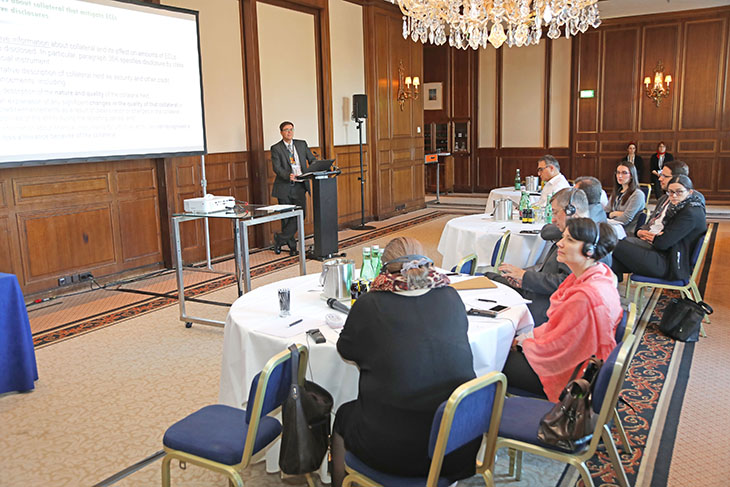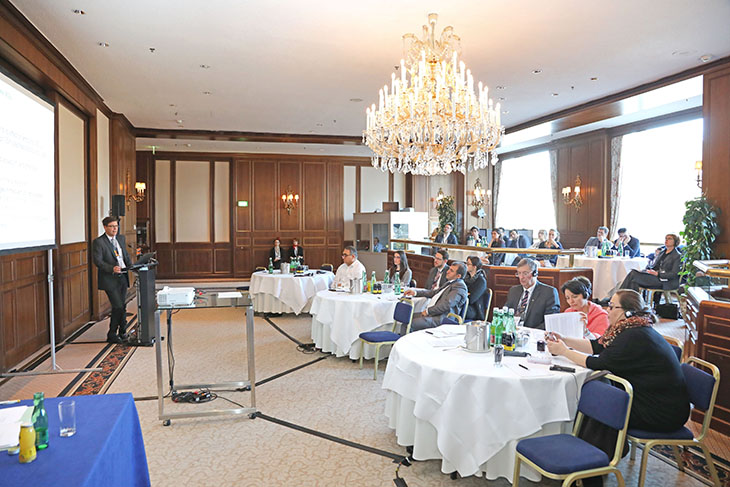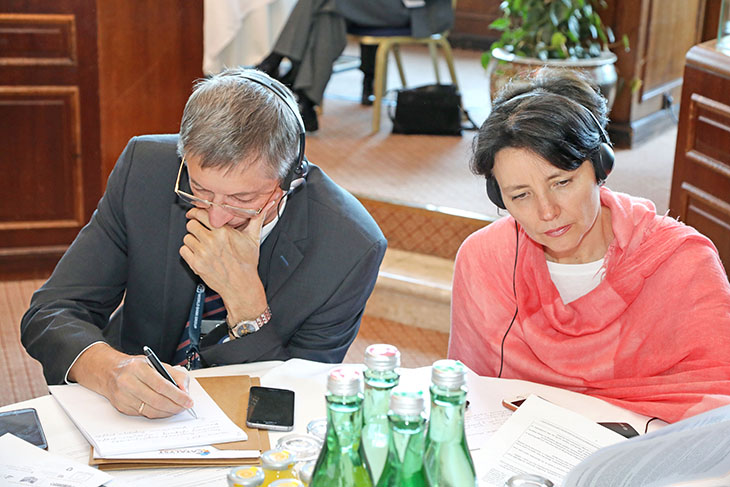Over 32 representatives from Central Banks, Banking Supervisory Agencies, and Insurance Supervisory Agencies from 13 countries from Europe and Central Asia attended the Executive IFRS for Regulators Workshop on 26 and 28 November 2018, at the hotel Intercontinental in Vienna. The workshop was one of the several events around the 2018 Ministerial Conference, that took place on 27 November 2018, and was specifically directed at financial supervisors and regulators. This workshop was jointly organized by the World Bank Centre for Financial Reporting Reform (CFRR) and the IFRS Foundation. It aims to provide senior staff of regulatory agencies with tools and skills to discharge their supervisory duties over banks and insurance companies more effectively.
Reliable reporting by banks and listed companies is critical to financial stability and the development of capital markets in developing countries, for several reasons. IFRS have just undergone significant changes to address issues that arose during the global financial crisis. Bank regulators need to update their understanding of the new standards and to anticipate the implementation challenges the recent changes are likely to pose. To do that, regulators cannot rely exclusively on the supervised entities’ auditors. Instead, financial regulators need to develop their own capacity to enforce the standards, independently from other regulation or supervision.
Ms. Adenike (Nike) Oyeyiola opened the workshop and highlighted that this event was made possible through the great cooperation that we had with the IFRS Foundation, and with the generosity of financial partners from the World Bank: the European Commission, the Austrian Ministry of Foreign Affairs, and SECO. She also reaffirmed the commitment of the World Bank to the assistance to regulators and supervisors for better transparency of the financial sector to support financial stability and growth.
Mr. Andy Jobst, advisor the CFO of the World Bank, reviewed how transparency is an essential element for development through leveraging public and private cooperation and financial markets, and why it is at the center of the development agenda of the World Bank.
Ms. Ann Tarca, a board member of the International Accounting Standards Board (IASB) reviewed the activities of the IASB around the disclosure project. The Board has identified three main concerns with the disclosure to the financial statements: not enough relevant information, to much irrelevant information, and ineffective communication. Several initiatives have been completed other are ongoing.
Mike Wells, World Bank, presented elements for decluttering financial statements hence making them more relevant to the operations of a company.
Mr. Pascal Frerejacque moderated a panel discussing the implementation of IFRS 9. The panel included Ms. Martina Drvar, Vice-Governor of the National Bank of Croatia, Ms. Ann Tarca, Board Member, International Accounting Standards Board, Mr. Guido Sopp, Deputy Head, IFRS Enforcement, FMA Austria, Mr. Ulf Leichsenring, Head of Accounting and Reporting, Raiffesen Bank International, and, Mr. Heiner Klein, Director, EY. The panel discussed that IFRS 9 had been a very important and resource consuming project. While implementation was well underway, some challenges remained for smaller banks facing lack of historical data, or having not enough capacity to implement the macro-economic scenarios that should impact the calculation of the provisions on NPLs.
Ms. Andrea Pryde, Technical Director at the IFRS Foundation, presented IFRS 17 – Insurance contracts, reviewed the industry concerns about implementation challenges and provided in her presentation an inventory of resources for the implementation of the standards.
Participants found the workshop to be very relevant to their work, and mentioned continued interest on follow-up workshops on the implementation challenges of IFRS 9 – Financial instruments, and reconciling the financial reporting approach with the prudential one; the practical implications of the implementation of IFRS 16 – Leases; further information on how to implement IFRS 17 – Insurance Contracts, the date of first application of which is 2022; and the role of internal auditing and internal control in IFRS implementation.
Disclaimer: This webpage was created and maintained with the financial support of the European Union. Its contents are the sole responsibility of CFRR and do not necessarily reflect the views of the European Union.
